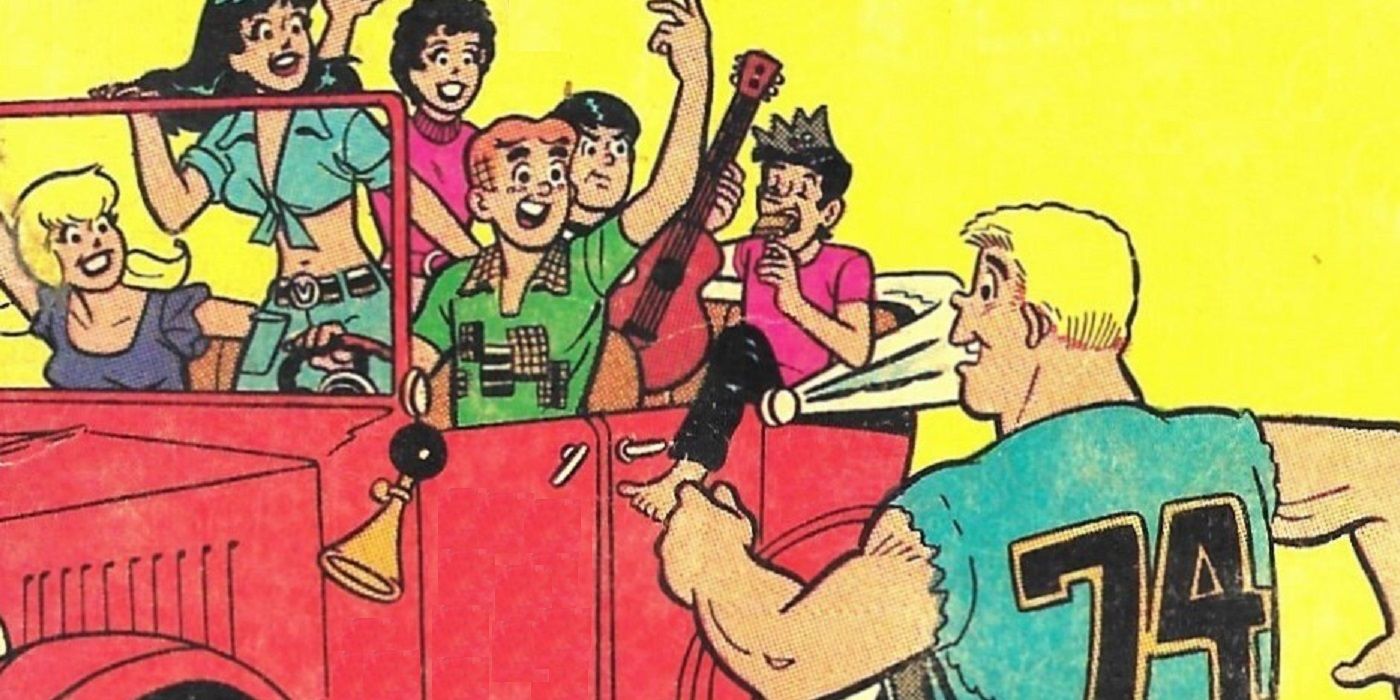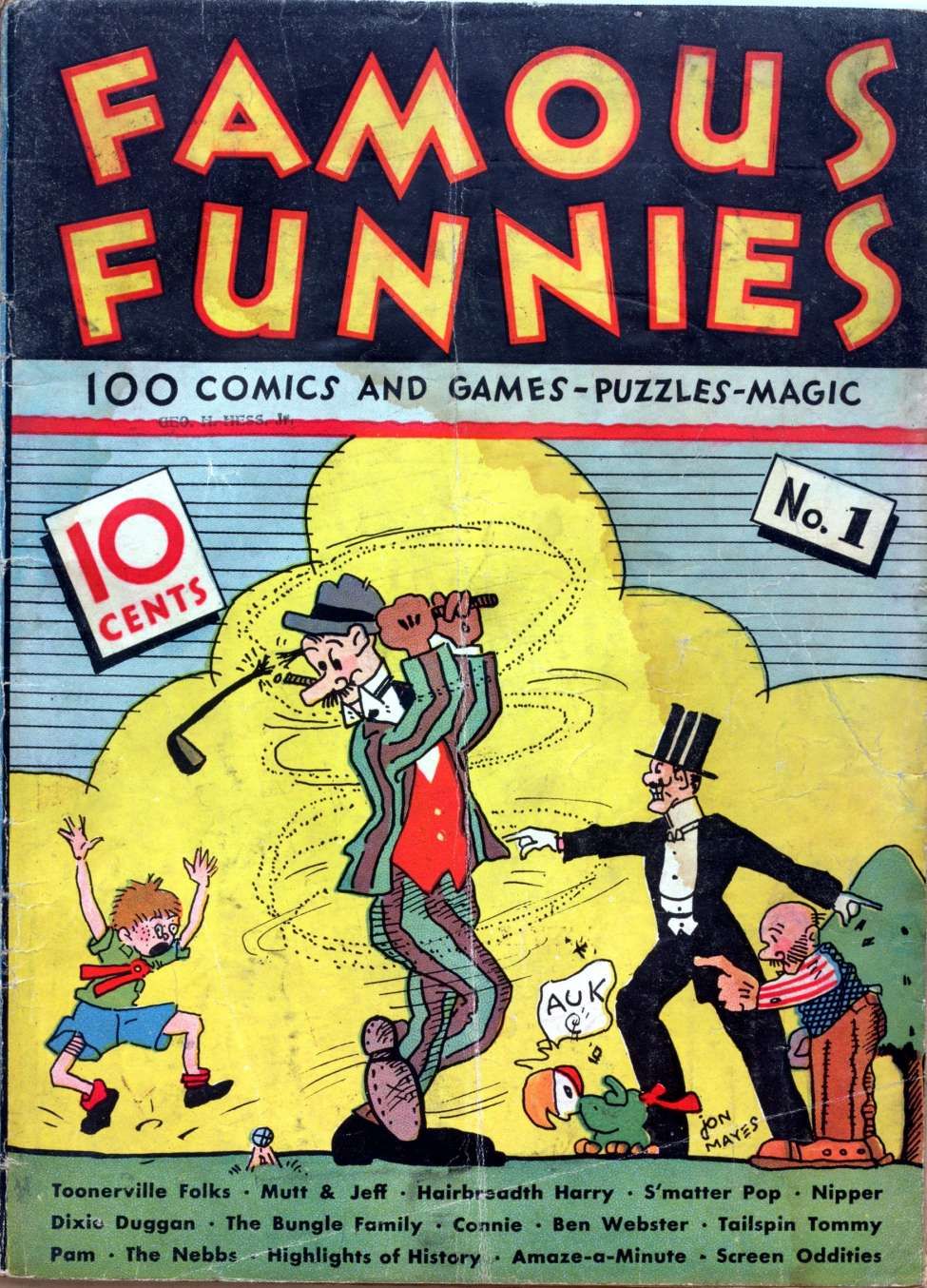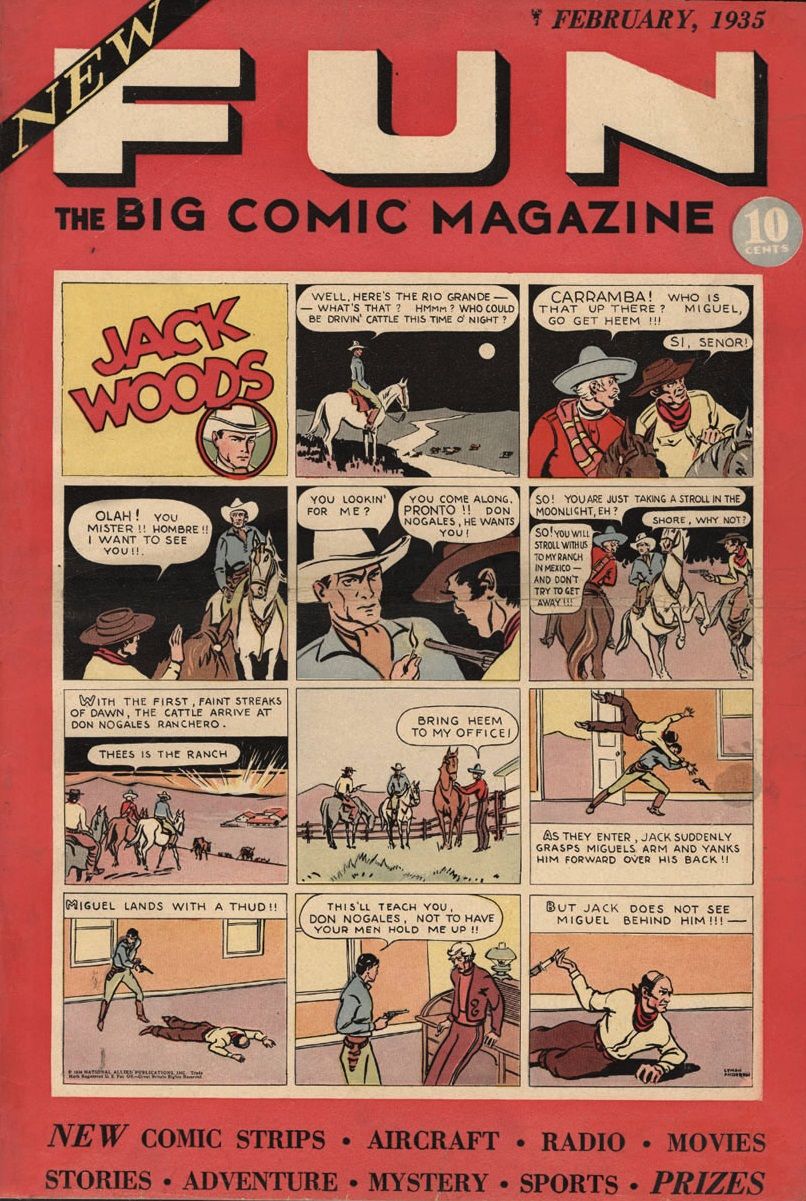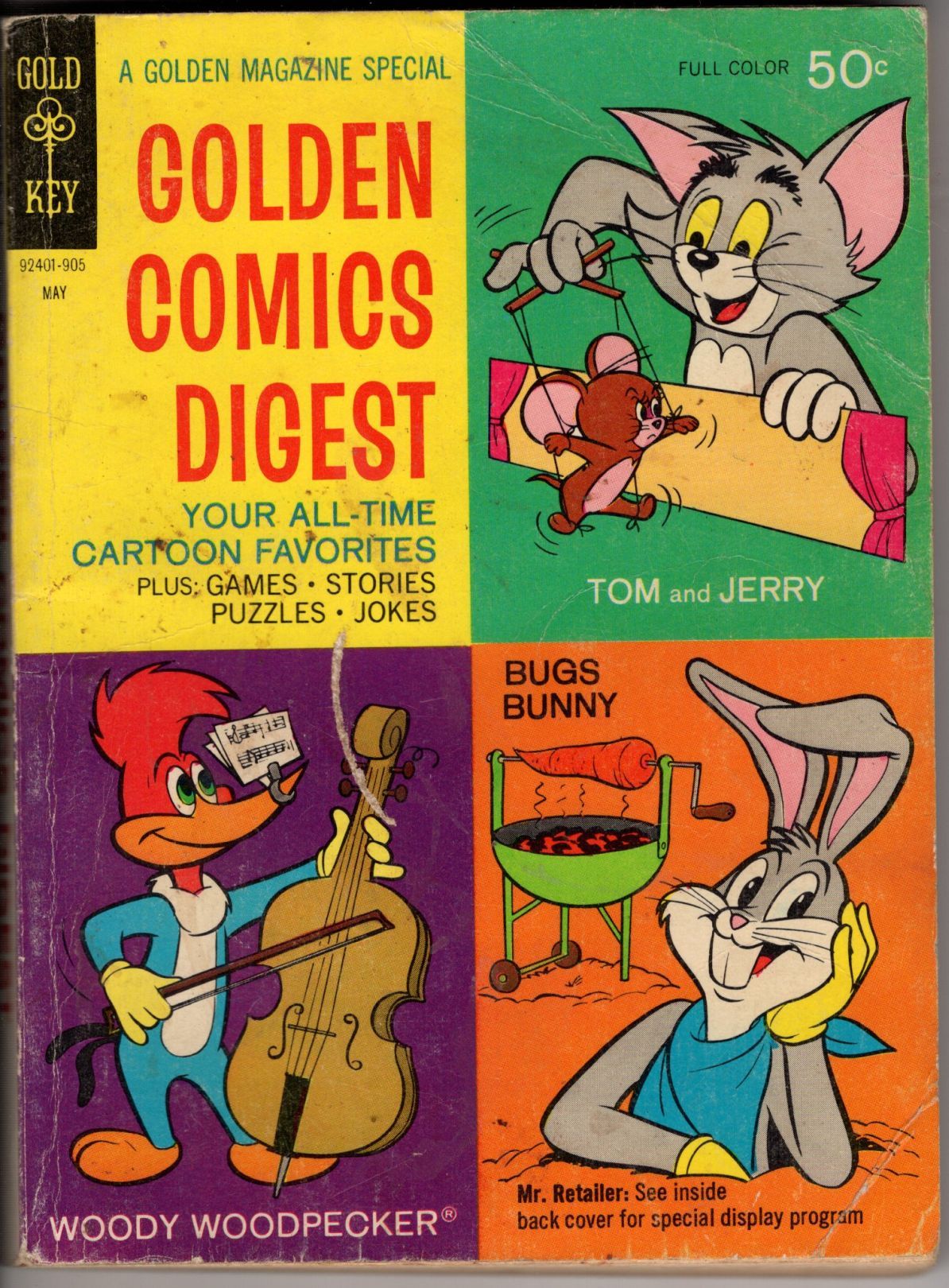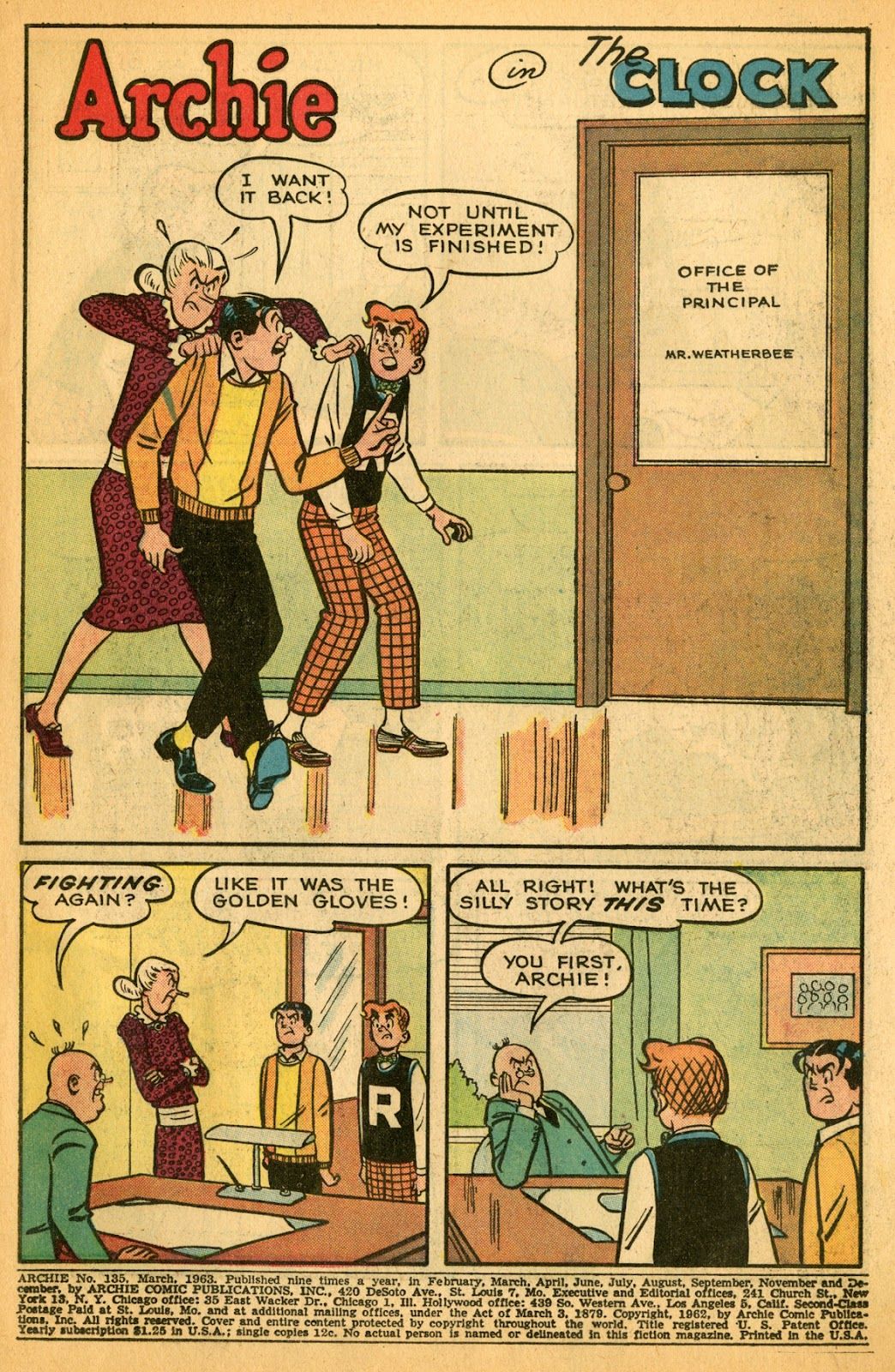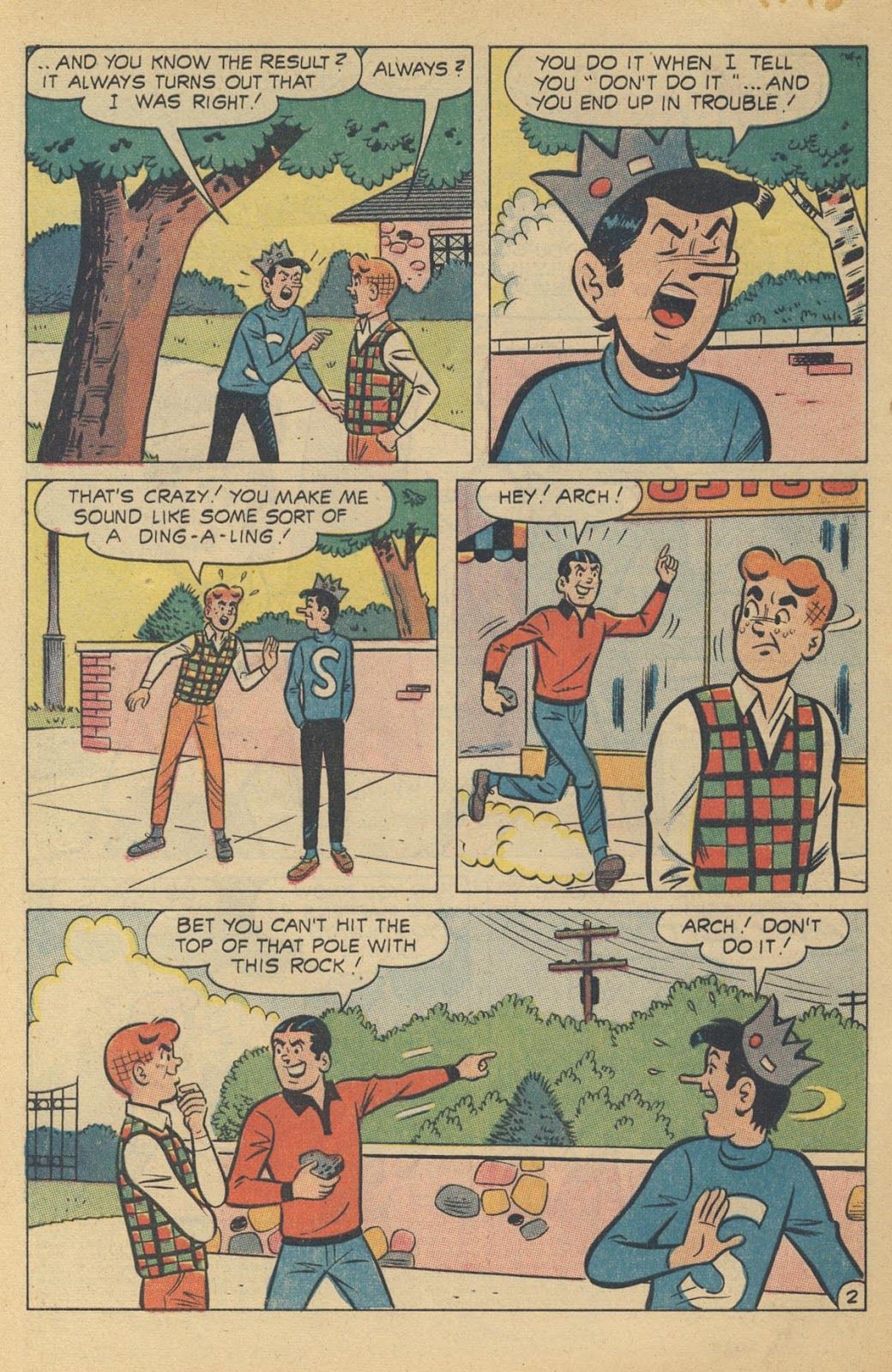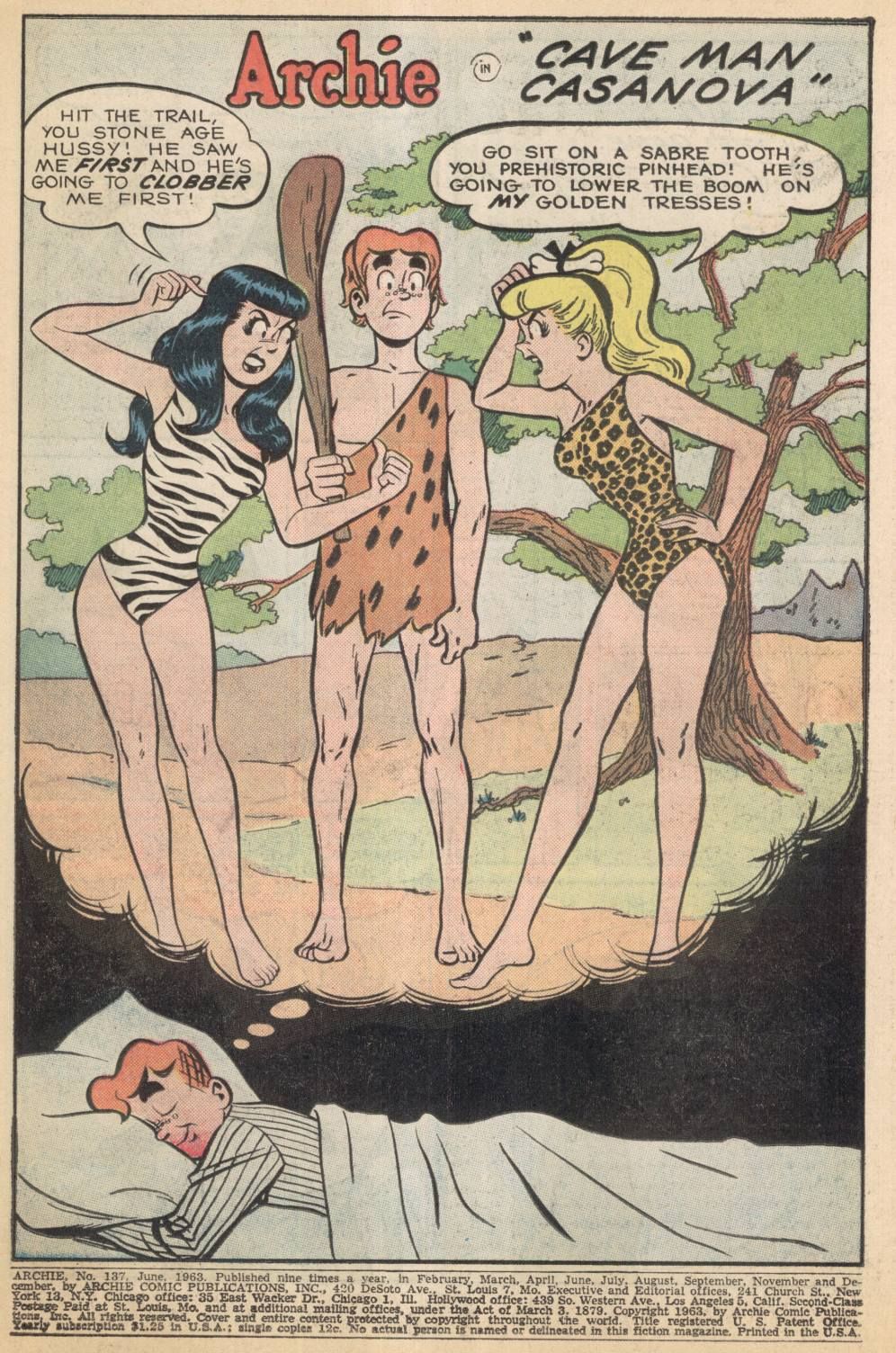In every Look Back, we examine a comic book issue from 10/25/50/75 years ago (plus a wild card every month with a fifth week in it). This time around, we had back fifty years to May 1973 for the introduction of the Archie Comics Digest.
When comic book publishers first started popping up in the late 1930s and early 1940s, they specifically were reprint comic books. The most popular early comic book was Famous Funnies, which literally did just that - reprint famous "funnies," that is, newspaper comic strips.
Major Malcolm Wheeler-Nicholson founded National Allied Publications (a company that he would be pushed out of a few years later right before it had its first major hit with a little comic book called Action Comics #1. They later officially re-named the company DC Comics) with the idea of taking that basic idea only doing it with ORIGINAL material, hence his book was called New Fun Comics...
While National Allied introduced the idea of original content, other companies continued to have success with simply reprinting comic strips. When some of the world's most famous comic strip superheroes (like the Shadow, the Phantom and Green Hornet) got their own comic books, they were mostly just reprints of their comic strips (not all of them were like this, of course. There were some whose comic books had original stories in them). So reprinted material wasn't originally a big deal.
Then, when original material became the norm at most comic book companies, they were done in anthology format. Even when Superman, Batman and more heroes got their own titles on top of the anthologies in which they were first featured (Action Comics, Detective Comics, etc.), their stories continued to be told in the anthology format, it was just that the anthologies would be entirely about them (so instead of a short Superman story appearing in Action Comics with stories featuring other heroes, it would appear in an issue of Superman along with other short stories starring Superman).
The reason that this matters is because it allowed companies to juggle a bunch of content and never have to worry too much about not having enough new comics, as they'd just be putting together a bunch of stories that could be swapped in interchangeably. This approach continued throughout the 1950s, so books would always be good, content-wise. Marvel had plenty of anthologies of their own, like Journey Into Mystery and Tales to Astonish, where they could fit various stories that they had on file.
However, once comic books became SERIALIZED, you were really screwed. You couldn't just swap in another story as it would break up the continuity of the series. At a company like Archie Comics, though, whose stories were rarely serialized, it wasn't a big deal, so that fact led to one of the biggest innovations for Archie, which debuted in May 1973, the Archie Comics Digest!
Who came up with the idea for Archie digests?
Back in 2019, Tom DeFalco was interviewed by Alex Grant and Jim Thompson for the Comic Book Historians podcast, and he discussed his early comic book career, which started at Archie Comics around 1972. While at Archie, DeFalco noticed that Gold Key, who produced Disney comic books, which were also not serialized, of course, had begun doing digest reprints of their comics...
DeFalco recounted to Grand and Thompson:
I saw them and I thought, wow, this would be perfect for our material. So John Goldwater came in one day and I said, “Mr. Goldwater, I think we should be doing these sort of books, these digest books.” He looked at me and says, “What are you out of your mind? How do you market them? Where do you sell them? They’re not going to fit on the comic book racks. There’s nothing you can do. Get out of here.” And he just told me to go back to my desk and shut up which he often did. Then, a couple of days later, he comes back and he says, “You know, I’m thinking about those digest books. Go talk to Ben Cooperstock about them.” Ben Cooperstock was our salesperson.
Cooperstock told DeFalco it was a bad idea, as well, as there was nowhere to sell it. However, just like Goldwater, Cooperstuck changed his mind and suggested selling them at supermarkets, at the racks that were used for the TV Guides. So Archie debuted Archie Comics Digest #1 in May 1973...
Who comics were in Archie Comics Digest #1?
The main story in the issue was an amusing story involving an alarm clock that Reggie tricks Archie into thinking it is a bomb from Archie #135...
The next major story is an awesome Jughead story from Jughead #166 ( I don't know who the artist is) about Jughead constantly warning Archie about danger, but Archie keeps ignoring him...
The next major story was from Archie #137, a Frank Doyle/Henry Lucey story spotlighting the popular concept of having Archie and the gang be cavemen and women...
Great stuff. And obviously, Archie digests have become a major part of the Archie business ever since.
If you folks have any suggestions for June (or any other later months) 2013, 1998, 1973 and 1948 comic books for me to spotlight, drop me a line at brianc@cbr.com! Here is the guide, though, for the cover dates of books so that you can make suggestions for books that actually came out in the correct month. Generally speaking, the traditional amount of time between the cover date and the release date of a comic book throughout most of comic history has been two months (it was three months at times, but not during the times we're discussing here). So the comic books will have a cover date that is two months ahead of the actual release date (so October for a book that came out in August). Obviously, it is easier to tell when a book from 10 years ago was released, since there was internet coverage of books back then.

